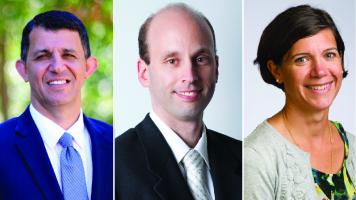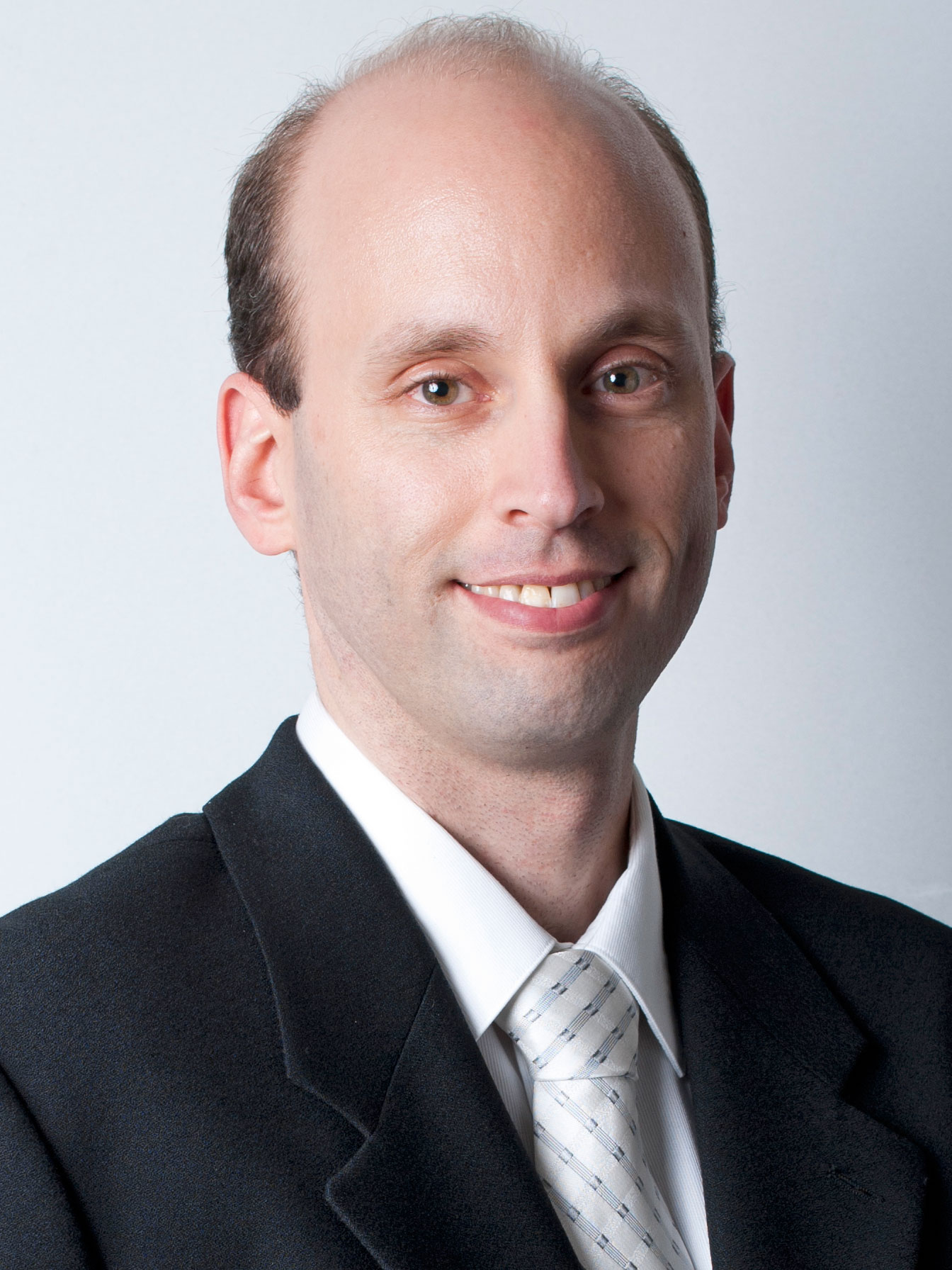Philip Larese-Casanova
Associate Professor,
Civil and Environmental Engineering
Affiliated Faculty,
Marine and Environmental Sciences
Office
- 469 Snell Engineering Center
- 617.373.2899
Research Focus
Physical, chemical, and electrochemical transformation processes of metallic, inorganic, and organic water pollutants, with applications to groundwater environments and unit operations
About
Philip Larese-Casanova is an Assistant Professor in the Department of Civil & Environmental Engineering. Prior to joining Northeastern University, he was a postdoctoral scholoar at Eberhard-Karls University Tuebingen and later Yale University. He received his Ph.D. in Environmental Engineering from the University of Iowa in 2006.
Education
- Ph.D., Civil & Environmental Engineering, University of Iowa, 2006
- B.S., Civil Engineering, University of Connecticut, 2000
Honors & Awards
- Civil and Environmental Engineering Excellence in Teaching Award, Northeastern University
- 2013 National Science Foundation CAREER Award
- 2011 “Students Speak” Teaching Award
- 2009-2010 Gaylord Donnelley Postdoctoral Environmental Fellow
- 2003-2006 National Science Foundation Graduate Research Fellow
Professional Affiliations
- American Chemical Society
- American Society of Civil Engineers
- Association of Environmental Engineering and Science Professors
- Chi Epsilon Civil Engineering Honor Society
- Geochemical Society
Research Overview
Physical, chemical, and electrochemical transformation processes of metallic, inorganic, and organic water pollutants, with applications to groundwater environments and unit operations
Selected Research Projects
- CAREER: Quantum Dot Degradation in Aquatic Environments
Principal Investigator, National Science Foundation - Insights to Selenium Cycling and Remediation Revealed by Stable Oxygen Isotopes
Principal Investigator, National Science Foundation - Recrystallization of Stable Iron Oxides in Reducing Environments
Principal Investigator, National Science Foundation
Department Research Areas
Selected Publications
- L. Xia, A.E.P. Schellenger, A. Onnis-Hayden, D.P. Jaisi, P. Larese-Casanova, Isolation of Selenate from Selenite, Carbonate, Phosphate, and Arsenate Solutions for δ18O-Selenate Determination, Isotopes in Environmental and Health Studies, 2020, 297-313
- N. Cai, P. Larese-Casanova, Facile Synthesis and Reuse of Magnetic Black Carbon Magnetite (Bc-Mag) for Fast Carbamazepine Removal From Water, Nanomaterials, 10, 2020, 213
- P. Paydary, P. Larese-Casanova, Water Chemistry Influences on Quantum Dot Dissolution in Water, Journal of Environmental Science, 90, 2020, 216-233
- S.M. Navarro Gallón, E. Alpaslan, M. Wang, P. Larese-Casanova, et al., Characterization and Study of the Antibacterial Mechanisms of Silver Nanoparticles Prepared with Microalgal Exopolysaccharides, Materials Science and Engineering C, 99, 2019, 685-695
- Y. Qin, Y. He, Q. She, P. Larese-Casanova, P. Li, Y. Chai Heterogeneity in Respiratory Electron Transfer and Adaptive Iron Utilization in a Bacterial Biofilm, Nature Communications, 10, 2019, 3702

Mar 06, 2025
Sustainable Decontamination of Industrial Waste
CEE Associate Professors Matthew Eckelman, Loretta Fernandez, Amy Mueller, Philip Larese-Casanova, and Professor Akram Alshawabkeh published their research on “Chromium Removal From Concentrated Ammonium-Nitrate Solution: Electrocoagulation With Iron in a Plug-Flow Reactor” in Separation and Purification Technology.

Mar 23, 2020
PROTECT Research Center: Continuing a Bold Mission for Environmental Health
This week, the PROTECT multidisciplinary and multi-institutional research center, led by Akram Alshawabkeh, Director of PROTECT, and Snell Professor of Engineering and Senior Associate Dean for Research and Graduate Education, was awarded a five-year $10.7 million grant from the National Institutes of Health to continue and expand its work. This next phase of PROTECT research will include the study of an additional 1,000 pregnant women and look at a mixture of chemicals beyond the initial two suspect chemical classes.

Jul 30, 2019
Larese-Casanova, Alshawabkeh, Fernandez Awarded DoD SERDP Grant
CEE Associate Professor Philip Larese-Casanova (PI), Assistant Professor Loretta Fernandez, and Associate Dean for Research and Graduate Education Akram Alsahwabkeh were awarded a $760K grant from the DoD’s Strategic Environmental Research and Development Program (SERDP) for “Electrochemically-Induced in situ Degradation of Legacy Munitions and Insensitive High Explosives in Manufacturing Wastewater.”

Jan 25, 2016
Examining Flint, MI Water Supply
CEE assistant professor Philip Larese-Casanova examines the drinking water crisis in Flint, Michigan.
Mar 06, 2015
Fe Oxide Recrystallization
CEE Assistant Professor Philip Larese-Casanova was awarded a $140K NSF Grant to study the “Recrystallization of Stable Iron Oxides in Reducing Environments” Abstract Source: NSF Iron (Fe) oxides are abundant in […]
Mar 20, 2014
Congratulations to recipients of the FY15 TIER 1 Interdisciplinary Research Seed Grants
19 COE faculty were recipients of FY15 TIER 1 Interdisciplinary Research Seed Grants for 11 different projects representing over $500K dollars of investment in research.

May 07, 2013
What’s in your water?
For a scholar whose research focuses on aquatic environmental chemistry, Philip Larese-Casanova spends little time doing research in the environment. “I don’t take water samples and I don’t go to drinking water […]

Apr 30, 2013
Larese-Casanova Discusses the Diverse Nature of Elements
In a recent interview on the Northeastern University research blog, InSolution, Prof. Philip Larese-Casanova discusses his passion for chemistry and explains the "personalities" of elements.
Apr 30, 2013
Congratulations COE Award Winners
Congratulations to the recipients of this year's College of Engineering Faculty and Staff awards. Outstanding Teachers of First Year Engineering Students: Thomas Gilbert, Chemistry; Susan Freeman, Engineering; John Lindhe, Mathematics; Bala Maheswaran, […]

Feb 01, 2013
Larese-Casanova Awarded CAREER Grant
CEE Assistant Professor Philip Larese-Casanova has been awarded a $404K NSF CAREER grant to explore the degradation of quantum dots that are released into waste streams and aquatic environments.
